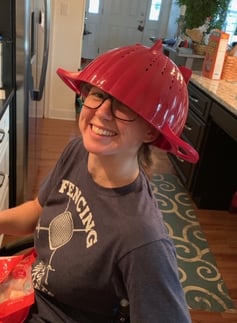Death of the Apology
Join Our Movement
What started as an idea has become a national movement. With your support, we can influence policy and inspire lasting change.
Become an Advocate
People shout to me “I’m sorry!” and jump clear off the sidewalk for me to pass. We can both fit on the path at the same time, sir.
Someone has run from behind me saying “I’m sorry for not opening the door,” as if it’s their responsibility and I’m depending on them to do it.
People have even apologized to me when I bump into them with my wheelchair. It’s cool that I have that much of an immunity but, also, c’mon.
When I tell people my story of a Jet Ski accident that left me paralyzed, I’ve often heard “I’m so sorry,” as if it was them who did it and as if I’m not the happiest person after it. I get that they’re being nice and probably don’t know what else to say, but an apology seems like an odd choice. Rather than an apology, may I suggest something like “what are you doing now?,” “I’m glad you’re thriving,” or even “I would love to read this story in your book, Greater Things.”
Just kidding about the last one, unless you really want to.
My sister a teacher, tells her students to use their apologies like they were gold coins. I think that’s the perfect way to summarize my message. For the few instances that you can’t put apologies to death, save your coins, honor your coins, and use your coins only when you need them. We’re all in this together – there’s no need to apologize.
